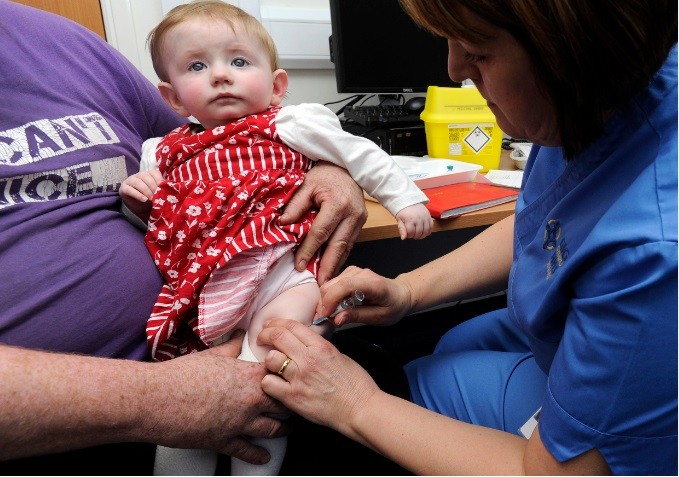A study, which was published in the Journal of the American Medical Association, finds no evidence that the MMR (measles, mumps and rubella) vaccine elevates the risk of autism, even among kids who are at higher genetic risk, The Guardian reported.
In the past few years, the United States has witnessed an increasing rate of autism spectrum disorders. Autism spectrum disorder is a group of developmental brain disorders that affect children's ability to socialize and communicate.
About one in 68 kids suffer from some form of autism spectrum disorder, the Centers for Disease Control and Prevention reported.
Dr. Bryan King, a researcher at the University of Washington, said that research has demonstrated that parents of children with autism spectrum disorders are more likely to postpone vaccinating their younger kids.
Several studies have found an increased risk of autism among children with older siblings with the condition, and some parents who think that their elder child's autism is related to vaccinations, particularly the MMR vaccine, have been hesitant to immunize their younger kids. Scientists found that vaccination rates among siblings of autistic children were at about 86 percent at 5 years, compared with 92 percent among children without autistic siblings.
However, Dr. Anjali Jain, the study leader, said that postponing recommended vaccinations puts kids at risk of severe infections.
The study included 95,000 kids with elder siblings. The researchers found that kids who got the MMR vaccine and had autistic older siblings were no more likely to develop autism than kids who were vaccinated and didn't have older siblings with autism. The relative risk of autism among children with older autistic siblings was lower if they were vaccinated compared with children who were not vaccinated.
Jain said that the results of the study should bury any concerns that parents of autistic kids might have that vaccinating their younger children will raise their risk of developing autism.



























